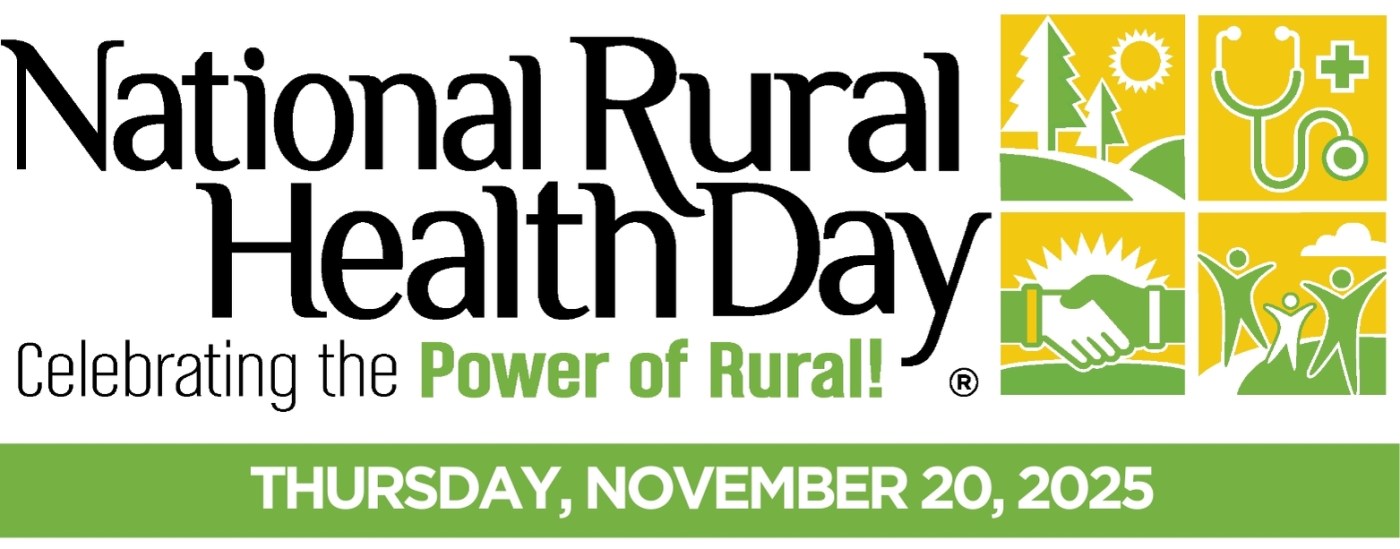Health
National Rural Health Day Highlights Challenges and Solutions

November 20 marks **National Rural Health Day**, a day dedicated to recognizing the contributions of healthcare providers and communities working to meet the unique health needs of rural populations in the United States. Sponsored by the **National Organization of State Offices of Rural Health (NOSORH)**, this day encourages discussions about the specific health challenges faced by rural Americans and promotes efforts to address these issues.
Despite the advantages of rural living, such as close-knit communities and scenic landscapes, residents in these areas often grapple with significant health risks. Reports from the **National Rural Health Day**, the **National Rural Health Information Hub**, the **National Institutes of Health**, and the **Centers for Disease Control and Prevention (CDC)** highlight that rural Americans have a higher likelihood of premature death from conditions such as heart disease, cancer, and stroke. Additionally, they face increased risks from accidents, suicide, and substance abuse.
Living in a rural environment presents distinct obstacles to maintaining health. Geographic factors play a critical role. Many individuals must travel long distances to access healthcare services, and limited public transportation can deter them from attending regular check-ups or preventive screenings. Emergency services also face longer response times, potentially leading to poorer outcomes for patients in crisis.
The scarcity of healthcare providers in rural areas further complicates matters. There is often a deficit of specialists in fields such as addiction and cancer care, which can lead to fragmented care experiences for patients. The financial struggles faced by community hospitals often result in reduced services being offered, making it difficult for residents to obtain critical healthcare locally. Moreover, inadequate broadband access limits the availability of telehealth services, which could otherwise help manage chronic diseases and mental health issues.
Cultural attitudes in rural communities can also hinder health outcomes. Many individuals prioritize independence and may be reluctant to seek help for mental health or other public health issues. This cultural norm can perpetuate stigma around seeking assistance, particularly for mental wellness, where isolation can exacerbate feelings of hopelessness.
In addition to these barriers, rural populations are facing challenges related to aging, limited insurance options, high tobacco usage, and unsafe driving practices. While some risk factors for diseases are beyond individual control, such as genetic predispositions, there are actionable steps that residents can take to enhance their health outcomes.
Understanding health insurance coverage is crucial. Most plans include benefits for annual wellness check-ups and preventive screenings. Utilizing these services can lead to early detection of serious conditions, ultimately improving the prognosis. For those without employer-sponsored insurance, resources such as the **Northeast Colorado Health Department (NCHD)** offer assistance through their Equity & Outreach team, helping individuals navigate the **Connect For Health Colorado** marketplace.
Transportation can often be a barrier to accessing care. Fortunately, options are available through the **Northeast Colorado Association of Local Governments (NECALG)** and the **Colorado Medicaid** non-emergency medical transportation program, ensuring that residents can reach necessary appointments.
To reduce health risks, individuals are encouraged to adopt healthier lifestyles. This includes maintaining a balanced diet and engaging in regular physical activity to manage weight effectively. The NCHD offers programs like the **Diabetes Prevention Program** to support individuals in making impactful lifestyle changes.
Tobacco cessation is another critical area for improvement. Smoking is linked to numerous chronic diseases and cancers. The NCHD provides resources and programs aimed at helping individuals quit smoking, thereby improving their long-term health.
Ensuring safe driving practices is essential, especially for families with children. The **Colorado State Patrol** has noted that a significant percentage of child safety seats are incorrectly installed. Residents are encouraged to have their safety equipment checked by certified inspectors to enhance child safety while traveling.
Mental wellness also requires attention in rural settings. The NCHD recognizes that lack of access to recreational activities and the stigma surrounding mental health can lead to isolation. Programs such as the **LifeSource Project** provide financial assistance for youth therapy, and the recently introduced **CredibleMind** online tool offers confidential access to mental health resources, assessments, and wellness practices.
Whether long-standing residents or newcomers, individuals in rural communities have the power to take charge of their health despite prevailing challenges. By leveraging available resources and support systems, they can work towards improving their health outcomes while enjoying the benefits of rural life. As National Rural Health Day underscores the importance of these issues, it serves as a reminder that health is a collective responsibility that requires ongoing attention and action.
-

 Politics2 weeks ago
Politics2 weeks agoHamas Chief Stresses Disarmament Tied to Occupation’s End
-

 Science2 weeks ago
Science2 weeks agoOhio State Study Uncovers Brain Connectivity and Function Links
-

 Entertainment2 weeks ago
Entertainment2 weeks agoMegan Thee Stallion Exposes Alleged Online Attack by Bots
-

 Science4 weeks ago
Science4 weeks agoResearchers Challenge 200-Year-Old Physics Principle with Atomic Engines
-

 Entertainment2 weeks ago
Entertainment2 weeks agoPaloma Elsesser Shines at LA Event with Iconic Slicked-Back Bun
-

 Top Stories2 weeks ago
Top Stories2 weeks agoFederal Agents Detain Driver in Addison; Protests Erupt Immediately
-

 Business2 weeks ago
Business2 weeks agoHome Depot Slashes Prices on Halloween Favorites Up to 75%
-

 Top Stories2 weeks ago
Top Stories2 weeks agoOrioles Hire Craig Albernaz as New Manager Amid Rebuild
-

 Business2 weeks ago
Business2 weeks agoMotley Fool Wealth Management Reduces Medtronic Holdings by 14.7%
-

 Entertainment2 weeks ago
Entertainment2 weeks agoSyracuse Stage Delivers Lively Adaptation of ‘The 39 Steps’
-

 Top Stories2 weeks ago
Top Stories2 weeks agoWill Smith Powers Dodgers to World Series Tie with Key Homer
-

 World4 weeks ago
World4 weeks agoGlobal Military Spending: Air Forces Ranked by Budget and Capability









